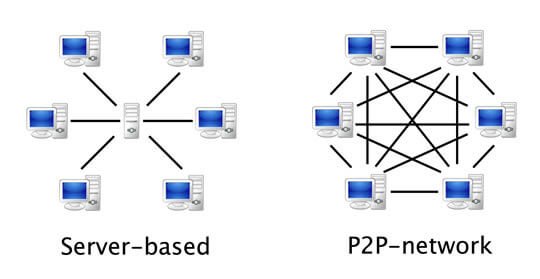Why Sports Gambling is about to change forever: Part 2
In part 1 of my blog I spoke of the current state of sports gambling in the US and some of the issues gamblers face today. The whole purpose of this blog was to inform you how the industry is going to change forever, but to fully understand why, you have to also be able to comprehend the basics of the technology which will enable it: blockchain and smart contracts.

Unless you have been living under a rock for the past year, you have heard of Bitcoin. Bitcoin was revolutionary because it was the first to use blockchain technology. Blockchain, not Bitcoin, is the reason the gambling and many other industries are about to undergo large transformations. Blockchain is nothing but a cryptographic decentralized ledger. That’s a mouthful so let’s break down what that means at a high level:
The Ledger- records transactions and packages them into blocks then links each new block onto the previous block, hence blockchain. Once a transaction is completed and added to a block it can never be changed. The Ledger is publicly available and anyone can see every transaction so nothing can ever be disputed and every dollar is always accounted for.
Cryptography- Each transaction is encrypted using cryptography. This makes each transaction almost impossible to know the details i.e. sender, recipient. This may seem contradictory to what I just said about the ledger being publicly available and transparent. This confused me at first as well, but I eventually came to understand that everyone has a private and a public address. Suit5 might be my private address and this is the part that is encrypted so no one will know it is me. However my public address may be something like 32asjfe734ds0. Anyone can look up how much $ is under my public address, or any transactions I have made, but no one will know 32asjfe734ds0 is my account.
Decentralized- For years banks, websites, or any company you can think of have been using centralized servers. For example, let’s go back to the good old days of AOL Instant Messenger. When you sent a IM it appeared to go directly to your recipient, but it really does not, there is a middle man. You actually sent it to an AOL server, and then the server sent that message to your friend. That server could easily store all of your conversations, and if a hacker were to break into it they could see your complete chat history and conversations. Today, almost every company: Facebook, Google, Wells Fargo, still use the centralized server approach. Blockchain differs in that it uses a peer to peer architecture, with no central server. With a decentralized system you are actually sending that IM directly to your amigo. P2P networks first gained popularity from our old friend Napster. Napster allowed computers to share music files directly with one another. Instead of the data being saved in one location on the centralized server, it is stored on every single peer. So if someone were to try and hack a decentralized network, they would have to hack thousands of computers simultaneously which is much more difficult than hacking one. Decentralization is a major key to blockchain technology.

The second largest Cryptocurrency behind Bitcoin is Ethereum. Ethereum is also a platform for developers to create their own blockchain decentralized applications (dapps). Ethereum is important here because it was the first to offer its users a technology that could be built into the blockchain called smart contracts. Smart contracts are basically computer programs which execute when predefined conditions are met. For example: say I wanted to create a march madness pool for me and all my friends with a $20 entry fee. A smart contract could be programmed to send them a url to sign up and allow them into the league, once the condition is met of them putting $20 into my account. Click here for a more in depth explanation
Back when I learned about smart contracts about a years ago, it inevitably lead me to think of how it could apply to the sports gambling industry. A big problem in the gambling industry for years has been bookies collecting money from losers, who often times don’t have the funds to cover their bets. This leads to someone not being paid and broken bones. Because smart contracts are on a blockchain the computer will also know how much money an account holds. The program will then be able to prevent a person from gambling money that they do not have. Smart contracts also will be able to communicate with sports reporting API’s like ESPN and gather scores and stats. Therefore, they will also be able to determine who won the bet and who to pay out.
The next issue I highlighted in the previous article was centered around legality and trust. Lets say you win a large amount of money using an offshore account. Do they really have to pay you? There is no legal authority you can turn to for assistance if they decide not to. Because the bets are placed with smart contracts, the transaction is processed by a computer once it receives the outcome of a game, so payment is 100% guaranteed.
What if the U.S. government learns that there are many US citizens using the site and decide to try and shut it down? They have done this many times before with sites like Pinnacle, BetEd, and Bodog. Because blockchain is decentralized, the US government would have to shut down thousands of computers at once for the network to go down. Possible, but much more difficult than shutting down a single server.
Utilizing a computer program that is capable of automatically collecting from the loser and paying out the winner is quicker, safer, and most importantly, cheaper than before. Why would someone continue to use a traditional sportsbook with a 10% fee, when they can utilize a blockchain based app with a 2-5% fee? They wouldn’t, and many people are coming to the same conclusion: The sports gambling industry is about to change forever.
Over the past year there has been many companies which have popped up, rushing to be the first Blockchain based Casino or Sports Gambling platform to market. Hopefully now you understand the problems blockchain solves in the gambling industry and why change is on the way. In my next post I will discuss some of my favorite projects that I have researched and follow.
Very interesting take. Ethereum’s speed is a bit of a challenge with online gaming, though. It’s been said before, but “Graphene is able to push over 3,000 transactions/second, versus Ethereum, currently at 25 (generous estimation) transactions/second.” More on this here: https://steemit.com/peerplays/@peerplays/ethereum-is-copper-graphene-is-fiberoptic-peerplays-bitshares-and-steem
Thanks! You also make great point. I mention Ethereum here because it was the first to offer smart contracts on its blockchain, and just wanted to explain how they work. I would agree that creating an application that is intended to have high traffic is not best put onto the Ethereum platform for the speed reason you stated, as well as a couple others which I will discuss in my next blog :)
We look forward to reading the next edition!
Hey @suit5, great post! I enjoyed your content. Keep up the good work! It's always nice to see good content here on Steemit! Cheers :)